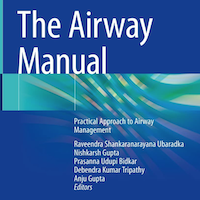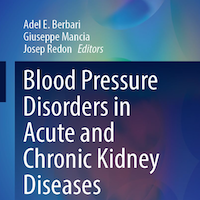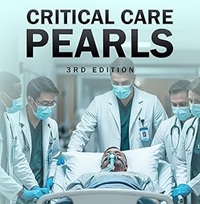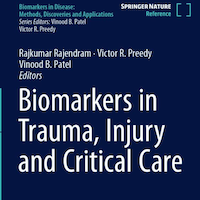Tag: trial
4D Trial Unlocks Calm: Dexmedetomidine Eases Hyperactive Delirium in Non-Intubated ICU Patients
The 4D randomized clinical trial, a multicenter, double-blind, placebo-controlled study conducted across nine ICUs, investigated the effectiveness of continuous intravenous dexmedetomidine infusion versus placebo in non-intubated... read more
Move Early, Recover Faster: Early Mobilization Slashes ICU Stays Without Adding Risk
An updated systematic review and meta-analysis of 16 high-quality randomized trials (2,385 ICU patients) delivers a clear verdict: starting mobilization within 72 hours of admission is not only safe but powerfully effective.... read more
BICARICU-2: Bicarb Infusions Curb Dialysis Needs in Acidotic AKI
The BICARICU-2 trial investigated the use of sodium bicarbonate (NaHCO3) infusions for critically ill patients suffering from severe acidemia and Acute Kidney Injury (AKI), most often due to septic shock. While the trial,... read more
Vasoactive Guard: Testing Arginine-Vasopressin to Shield Kidneys Post-Liver Transplant
This clinical trial investigates whether a low dose of argipressin (the active substance in REVERPLEG) administered during liver transplantation surgery can help prevent Acute Kidney Injury (AKI), a severe and common post-operative... read more
The REGULATE Trial: Finding the Best Blood Pressure Drug for Severe Brain Injury
The REGULATE trial is a crucial, large-scale, randomized study designed to determine the optimal vasopressor (blood pressure medication) strategy for patients with severe traumatic brain injury (TBI). The goal is to see... read more
Precision Hydration: Causal Machine Learning Pinpoints Sepsis-AKI Patients Who Thrive on Less IV Fluid
The results of this study demonstrate that a causal machine learning (ML) framework can successfully identify patients with sepsis-AKI who benefit from a restrictive fluid strategy. This technology offers a promising, data-driven... read more
REGULATE Trial: Norepinephrine vs. Vasopressin – The Head-to-Heart Showdown in Severe TBI
REGULATE is the first adequately powered trial to systematically compare these vasopressor strategies in severe TBI. The results are expected to provide an evidence-based foundation for developing individualized vasopressor... read more
The MAP-SEPS Protocol: A New Frontier in Detecting Early Sepsis by Targeting Microcirculation
The MAP-SEPS trial is a prospective observational study designed to determine if a comprehensive, multimodal approach to peripheral perfusion monitoring can improve the early detection of sepsis and organ failure in critically... read more
Handbook of Intravenous Fluids
This easy to use pocket book covers all aspects of intravenous fluid therapy in critically ill patients from applied physiology to bedside clinical management succinctly. It includes updated and evidence-based content on... read more

Dexmedetomidine During Surgery Lowers Risk of Acute Kidney Injury and Improves Microcirculation
In a randomized, controlled, double-blind study, researchers found that giving patients dexmedetomidine during cardiac surgery significantly improved their outcomes. Here's what they discovered: Better Circulation:... read more
Norepinephrine Dosing: A Historical Look at Reporting and Salt Formulations
Reporting on norepinephrine dosage has been inconsistent due to variations in how drug labels account for different salt formulations. This inconsistency creates problems in clinical practice and research by making it difficult... read more
oXiris Treatment Efficacy To Reduce Endotoxin Levels
In this pilot study of patients with CS requiring VA-ECMO, the application of an oXiris did not demonstrate a significant reduction in endotoxin levels at 48 h compared with standard care. While we observed temporal decreases... read more
Fever Management with or without a Temperature Control Device After OHCA and Resuscitation
the TEMP‐CARE trial will advance our understanding of post‐cardiac arrest care fever management strategies. With a large sample size and a broad patient population, the results of this trial will inform clinical practice... read more
Early Initiated Noradrenaline vs. Fluid Therapy for Hypotension and Shock
The VASOSHOCK trial is a pragmatic, multi-center, superiority, randomized controlled trial investigating early initiation of peripheral noradrenaline in hypotension and shock, investigating the impact of this treatment on... read more
Standard vs. Double Dosing of Beta-lactam Antibiotics in Critically Ill Sepsis Patients
The BULLSEYE trial is a randomized controlled study designed to enhance the treatment of critically ill patients with septic shock. The concept of administering higher and double doses of beta-lactams in such patients... read more
PCR and Biomarker Algorithms to Guide Antibiotics in Lower Respiratory Tract Infections
Acute chest syndrome (ACS) in sickle cell disease (SCD) is life-threatening and characterised by a new infiltrate on imaging plus fever or respiratory symptoms.1 Causes of ACS include infections, venous or fat embolisms or... read more
Pirfenidone to Prevent Fibrosis in ARDS
Pulmonary fibrosis is a major complication of the Acute Respiratory Distress Syndrome (ARDS). Pirfenidone is an approved treatment for idiopathic pulmonary fibrosis. It may attenuate ARDS-related fibrosis and decrease the... read more
Mortality Time Frame Variability in Septic Shock Clinical Trials
There was considerable variability in the mortality time frames reported in ICU-based septic shock trials. This variability may lead to under or overestimation of the problem, overlooking the effectiveness of the interventions... read more
Machine Learning to Predict Extubation Success Using the SBT
Among the predictive models that used MOT, VCD, and the spontaneous breathing trial (SBT) as input variables through five machine learning techniques, decision trees and artificial neural networks demonstrated the best diagnostic... read more
Multi-dimensional Outcomes Following ECPR
Recent trials suggested that extracorporeal cardio-pulmonary resuscitation (ECPR) with veno-arterial extracorporeal membrane oxygenation (VA-ECMO) or "ECMELLA" (VA-ECMO plus Impella) may improve short-term survival and neurological... read more
Zosyn vs. Efepime: Which One Is Safer?
While both piperacillin-tazobactam and cefepime are commonly used to treat infections caused by Pseudomonas aeruginosa in hospitalized patients, there is a concern that piperacillin-tazobactam may lead to acute kidney injury... read more
Sodium Bicarbonate In In-Hospital and Out-of-Hospital Cardiac Arrest
Cardiac arrest is a common cause of death worldwide. Sodium bicarbonate (SB) has commonly been used during cardiopulmonary resuscitation (CPR) to correct metabolic acidosis (MA). However, the existence of evidence about its... read more









